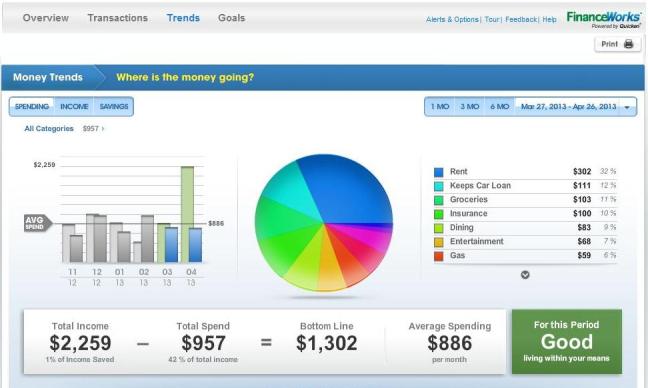Each new year brings with it new goals and aspirations, often in the form of resolutions. According to Google search data, new year’s resolutions rooted in personal finance are near the top of the list of most popular resolutions in 2017. Save more. Get control of debt. Find a way to earn extra income. These are all great personal initiatives that ultimately lead to one common outcome: Financial Success.
We asked our team for their thoughts, tips and habits for financial success and how to make 2017 the best year yet. Here is what they had to say:
1. Build your emergency fund
An “emergency fund” should be your first savings priority. You should build this fund to $1,000 as quickly as possible with an ultimate goal of six months of budgeted expense. Do not touch this for everyday purchases. As “emergencies” happen, you are fully prepared to pay for said emergency instead of wondering where the money will come from.
− Joann Manteufel, Personal Banker
2. Goals. Budgets. Habits.
In terms of financial success, I am always a believer in establishing goals first. Whether that be saving for a down payment on a car, house, engagement ring, trip, etc… it is important to set your goal with a specific dollar value first, in my opinion. From there you can establish a roadmap to guide you from where you are now to your end goal. That roadmap starts with a budget of your monthly income & expenses. Once you have established your goal and set your budget, you will know how much you can realistically save each month. That figure is what I always tell my younger clients to set up on auto pay to have automatically transferred to their savings account. After a few months of auto pay, people tend to look at the monthly savings as another bill and build it in to their thinking when planning out expenditures. Budgeting requires discipline but once you take it seriously, it becomes a habit. Once saving becomes a habit, it is adopted with regularity.
− David Jones, Commercial Lender
3. Staying Organized
It’s important to keep your financial documents organized. Each month I download a PDF of my financial statements to my computer so I can keep an electronic record. Then, in January, I transfer all of my saved statements onto a USB drive and deliver that along with a folder containing other important tax documents to my accountant.
Keeping my financial information organized gives me peace of mind when tax season comes around. It may take a little time commitment up front, but will save you time and worry down the road.
− Candi Huebner, Personal Banker
4. The Match
Take advantage of matching retirement contributions offered by your employer. This is the single easiest way to get ahead for retirement. January is a good time for a 401(k) checkup.
− Jay Heibel, CFO
5. Getting over the down payment hurdle
The main issue I run into with my customers is having enough money available for a down payment. My suggestion to them is to start putting away money each month as if they were making a house payment. I look at what they can afford for a payment (Principal, Interest, Taxes & Insurance) and compare that to what they are paying in rent. Then, I have them “pretend” to make that mortgage payment by transferring the difference between their current rent and their projected mortgage payment into a savings account. This allows them to get comfortable with that monthly payment while building a nice reserve for a down payment.
Example: Your rent is $700/month & your projected mortgage payment is $950/month. You would transfer the difference, $250/month, into a savings account to be used for a future down payment.
− Mary Lynn Johnson, Mortgage Lender
6. The Best Investment
I’m often asked what is the best investment? My response is always “time“. The magic of compound interest is something that I like to show my younger customers, especially, because it really accentuates the importance of starting to save NOW and not waiting for the “right time”. The difference that even a few years can make is significant. Whether you are just starting in your career or you’ve been putting off saving for years, today is a good time to start investing for your retirement.
–Mike Peterson, Investment Center
7. Reduce Interest Expense, Build Equity
Be aggressive on debt repayment while maintaining an adequate amount of liquidity. Always pay credit card debt balances in full each month, if possible. Those are typically your most expensive forms of debt and can really dig into your bottom line. For vehicle and other short-term loans set up auto payments and even make your payment above the minimum required. These two strategies will reduce interest expense and help you build equity.
− Brian Gorman, President
 David Jones, Lender – Spring Green
David Jones, Lender – Spring Green



